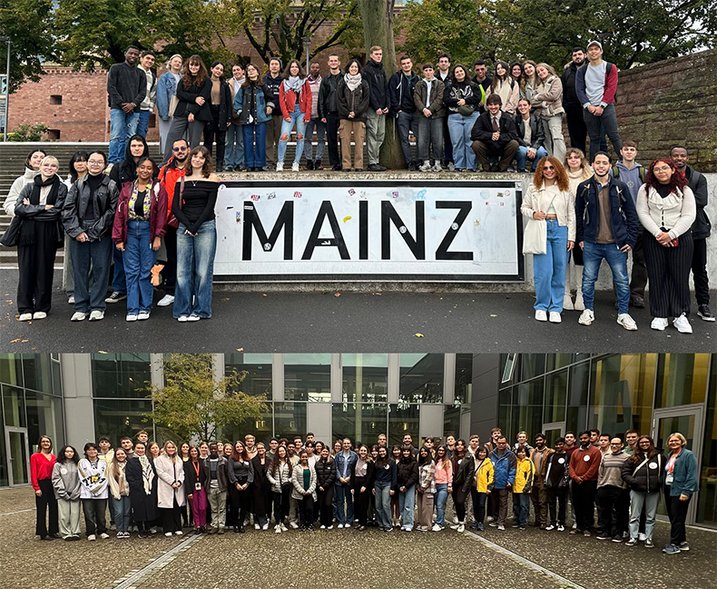Electromobility now plays a major role in various areas and harbors vast potential. Small and medium-sized companies have recognized this and have turned their focus to it. In the search for innovative and sustainable solutions, collaboration with universities of applied sciences (HAW) offers a wide range of opportunities. The member universities of the University Alliance for SMEs (HAfM) cordially invite you to an online dialog on Tuesday, September 17, 2023, from 3 to 4:30 pm on the topic of “E-mobility in focus – impulses from science for SMEs”. Registration is now open.
“MINOS” – real-time data service for emergency vehicles
Mainz University of Applied Sciences is also participating as a member university: Prof. Dr. Karl-Albrecht Klinge, Professor of Applied Informatics with a focus on Geographical Information Systems at Mainz University of Applied Sciences, will be presenting the “MINOS” project together with research assistants Konstantin Geist, Julian Stockemer, and Sarah Schütz. This project involves a real-time data service for emergency vehicles, which is used to create a forecast for the delay-free crossing of track-side level crossings. A data service is provided for this purpose, which predicts with sufficient lead time whether the emergency vehicle will find an open or closed crossing when it reaches the level crossing. Rescue services can use this innovative method to optimize their route planning to ensure that they can reach the scene of an emergency as quickly as possible.
During the online event on Thursday, September 17, 2024, starting at 3 pm on the Spatial Chat online platform, participants will be given a brief presentation of various projects at the universities of applied sciences focusing on the topic of “e-Mobility”. Following this, there will be an opportunity to explore the collaboration between science and industry in detail and talk to those involved. Alongside the Berlin Transfer Conference, HAfM would like to use this dialog format to promote reciprocal exchange relationships between SMEs and science to promote transfer and contribute to direct collaborations.
Program
- 3 pm: Opening remarks by HAfM Managing Director Prof. Dr.-Ing. Peter Ritzenhoff
- 3:10 pm: Speed presentation to introduce the collaboration projects between SMEs and universities of applied sciences with a focus on “e-Mobility”
- Project “TRANGAN”, Akash Mangaluru-Ramananda (Aalen University)
- Project “Sustainable lightweight construction through bio-based fiber composites”, Prof. Dr. Iman Taha (Aalen University)
- Project “Potentials of electromobility with the integration of Mobility on Demand (MoD) in public transportation”, Prof. Dr. Marc Gennat (Niederrhein University of Applied Sciences)
- Project “Sector coupling workbench”, Prof. Dr. Jens Thorn, Prof. Dr. Torsten Cziesla, Prof. Dr. Uwe Neumann (Hamm-Lippstadt University of Applied Sciences)
- Project “Test field for electric traction systems”, Prof. Dr. Christian Klöffer (Offenburg University of Applied Sciences)
- Project “Power 400 – High-performance charging system with integrated buffer storage”, M.Sc. Clemens Kerssen (TH Lübeck)
- “MINOS” project, Prof. Dr. Karl-Albrecht Klinge, Konstantin Geist (Mainz University of Applied Sciences)
- Project “Safety of Li-Ion batteries”, Prof. Dr. Stefan Kolling (THM)
- Project “E|MPower”, Prof. Dr. Armin Dietz, Prof. Dr. Jan Lohbreier (TH Nuremberg)
- 3:45 pm: Explanation of the Spatial Chat rooms for intensive exchange and dialog
- Starting 3.45 pm: Online dialog and networking in the online rooms with representatives from universities and SMEs from each project
Registration is now open at hochschulallianz.de.
The range of innovations and developments shows the potential that lies in the collaboration between SMEs and academia throughout Germany and in its regions.




